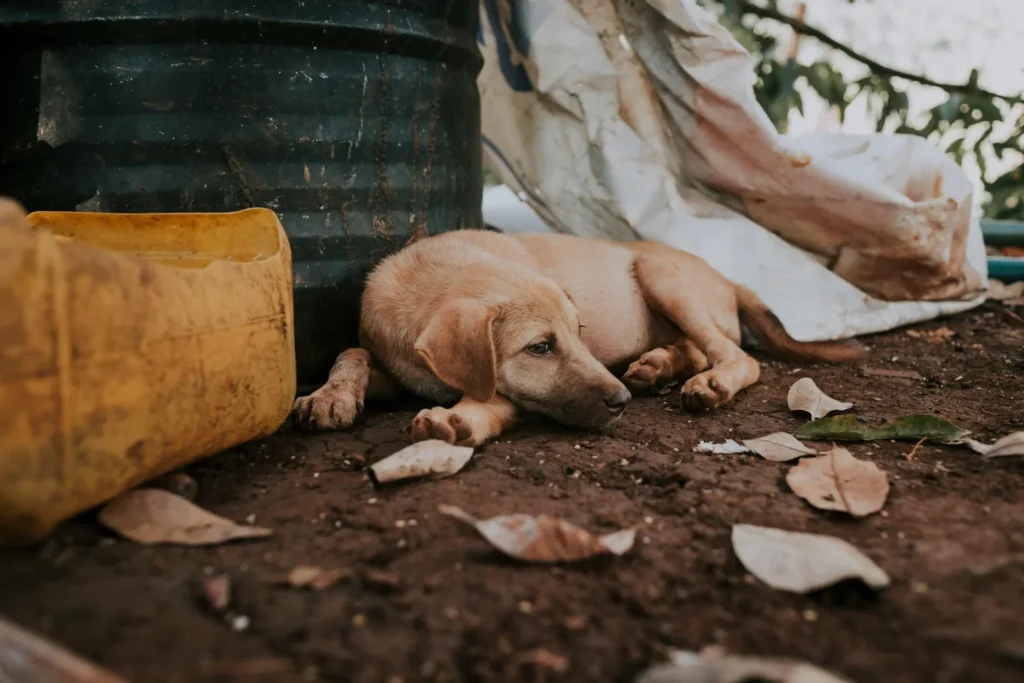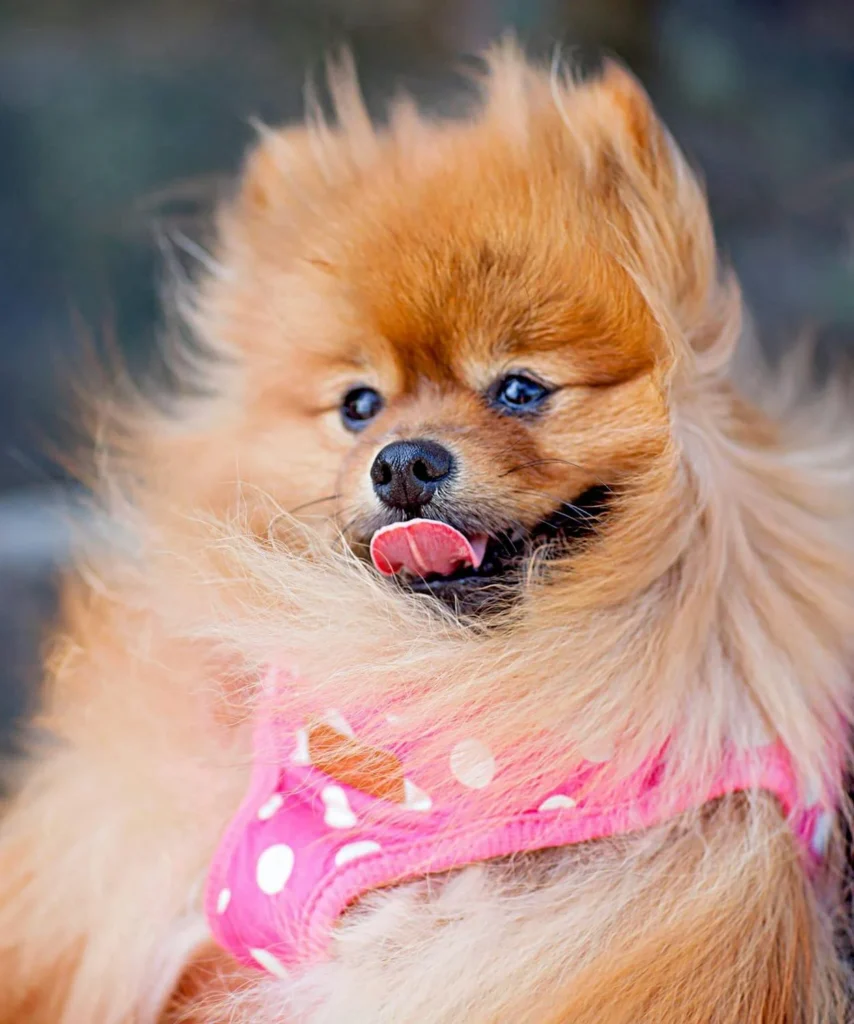Introduction: The Gentle Nature of Havanese Dogs 🐾
Havanese dogs, with their adorable fluffy coats and playful personalities, have captured the hearts of dog lovers worldwide. But like any breed, questions about their behavior often arise. One common concern is their tendency to bite. Let’s dive into the world of Havanese and explore their biting habits, comparing them to other breeds and uncovering the truth behind those little puppy teeth.
Understanding Havanese Temperament 🌟
Havanese are known for their friendly, affectionate nature. They’re small dogs with big hearts, typically weighing between 7-13 pounds. Originally from Cuba, these little charmers have become popular family pets due to their loving disposition and adaptability.
Key Traits of Havanese:
- Friendly and sociable 😊
- Intelligent and trainable 🧠
- Low-shedding coat 🦛
- Energetic and playful 🏃♂️
- Good with children and other pets 👨👩👧👦🐱
But do these lovable furballs have a dark side? Let’s bite into the facts!
Do Havanese Bite? The Truth Unveiled 🕵️♂️
The short answer is: Yes, Havanese can bite, but they’re not known for being aggressive biters. Like all dogs, Havanese have the physical capability to bite. However, their temperament and proper training play crucial roles in determining their likelihood to do so.

Factors Influencing Biting Behavior in Havanese
- Age: Puppies often nip during teething or play 🦷
- Training: Well-trained dogs are less likely to bite unnecessarily 🎓
- Socialization: Properly socialized Havanese are typically gentle 🐾
- Health: Pain or discomfort can lead to defensive biting 🏥
- Fear or stress: Unfamiliar situations may trigger nipping 😨
Let’s break these down further:
Age and Biting in Havanese 📅
Puppies, regardless of breed, go through a teething phase. During this time, they may nip more frequently as they explore their world and soothe their sore gums.
| Age Range | Biting Tendency | Reason |
|---|---|---|
| 0-3 months | Moderate | Exploring with mouth |
| 3-6 months | High | Teething phase |
| 6-12 months | Decreasing | Learning bite inhibition |
| 1+ years | Low | Maturity and training |
As Havanese puppies grow, proper training can significantly reduce biting behavior.
Training: The Key to a Well-Behaved Havanese 🎓
Training plays a crucial role in preventing biting behavior. Havanese are intelligent dogs that respond well to positive reinforcement techniques.
Tips for Training Your Havanese Not to Bite:
- Use positive reinforcement 🍖
- Redirect biting to appropriate toys 🧸
- Teach the “gentle” command 🗣️
- Socialize early and often 🐕🦺
- Provide mental stimulation 🧠
Remember, consistency is key in training your Havanese to be a well-mannered companion.
Socialization: Creating a Confident Havanese 🌎
Proper socialization is crucial for preventing fear-based biting. Expose your Havanese to various people, animals, and environments from a young age.
Socialization Checklist for Havanese:
- Different types of people (ages, genders, appearances) 👨👩👧👦
- Various animals (dogs, cats, small pets) 🐕🐈🐹
- New environments (parks, streets, stores) 🏞️🛒
- Different sounds and experiences 🎶🚗
A well-socialized Havanese is less likely to bite out of fear or anxiety.
Health Concerns and Biting 🏥
Sometimes, biting can be a sign of underlying health issues. If your normally gentle Havanese suddenly starts nipping, it’s time for a vet check-up.
Potential Health Issues That May Lead to Biting:
- Dental problems 🦷
- Joint pain or arthritis 🦴
- Ear infections 👂
- Neurological issues 🧠
Always consult with your veterinarian if you notice sudden changes in your Havanese’s behavior.
Stress and Fear: Understanding Your Havanese’s Emotions 😨
Like humans, dogs can bite when they feel threatened or stressed. Recognizing signs of stress in your Havanese can help prevent biting incidents.
Signs of Stress in Havanese:
- Lip licking 👅
- Yawning when not tired 🥱
- Whale eye (showing whites of eyes) 👁️
- Tucked tail 🐕
- Raised hackles 🦮
By understanding these signals, you can remove your Havanese from stressful situations before they escalate to biting.
Do Havanese Bite a Lot? Comparing to Other Breeds 📊
When it comes to biting frequency, Havanese are generally on the lower end of the spectrum compared to many other dog breeds. Let’s look at a comparison:
| Breed | Biting Tendency | Reason |
|---|---|---|
| Havanese | Low | Gentle temperament |
| Chihuahua | Moderate | Protective nature |
| German Shepherd | Moderate-High | Working/guarding instincts |
| Golden Retriever | Low | Friendly disposition |
| Jack Russell Terrier | Moderate | High energy, prey drive |
As we can see, Havanese rank among the breeds less likely to bite frequently. However, individual personality and training always play a role.
Best Dog Breeds for Minimal Biting Risk 🏆
While any dog can bite under certain circumstances, some breeds are known for their gentle mouths:
- Labrador Retriever 🦮
- Golden Retriever 🐕
- Cavalier King Charles Spaniel 🐶
- Pug 🐾
- Havanese 💖
These breeds are often recommended for families with children due to their patient and gentle nature.
Dog Breeds with Higher Biting Tendencies ⚠️
On the other end of the spectrum, some breeds may be more prone to biting:
- Chihuahua
- Dachshund
- Chow Chow
- Jack Russell Terrier
- Pit Bull Terrier
It’s important to note that proper training and socialization can significantly reduce biting risks in all breeds.
What is the Bite Force of a Havanese? 💪
Bite force is measured in pounds per square inch (PSI). While there isn’t specific data on Havanese bite force, we can make some educated guesses based on their size and jaw structure.
Estimating Havanese Bite Force
Havanese are small dogs with relatively small jaws. Their bite force is likely to be on the lower end of the canine spectrum.
| Dog Size | Estimated Bite Force (PSI) |
|---|---|
| Small (Havanese) | 50-150 PSI |
| Medium | 150-250 PSI |
| Large | 250-400 PSI |
| Extra Large | 400+ PSI |
For comparison:
- Human bite force: ~120-140 PSI
- Domestic cat: ~60 PSI
- Rottweiler: ~328 PSI
- Pit Bull: ~235 PSI
While a Havanese bite might not be as strong as larger breeds, it’s still important to prevent biting behavior through proper training and socialization.
Preventing Havanese Biting: A Comprehensive Guide 🛡️
Now that we understand why Havanese might bite and how their bite force compares to other breeds, let’s focus on prevention. Here’s a step-by-step guide to raising a well-behaved Havanese who’s less likely to bite:
1. Start Early: Puppy Training 101 🐾
The best time to start training is when your Havanese is still a puppy. Early intervention can prevent biting habits from forming.
Key Puppy Training Tips:
- Begin socialization as early as 3 weeks old (with vet approval)
- Use positive reinforcement techniques
- Teach bite inhibition through gentle play
- Provide appropriate chew toys for teething
2. Socialization: Creating a Well-Rounded Havanese 🌍
Proper socialization is crucial for preventing fear-based biting. Expose your Havanese to a variety of experiences in a positive way.
Socialization Checklist:
- Different types of people
- Various animals
- New environments
- Different sounds and textures
Remember to keep experiences positive and not overwhelming for your pup.
3. Exercise: A Tired Havanese is a Good Havanese 🏃♂️
Adequate physical and mental stimulation can prevent boredom-related nipping and destructive behaviors.
Exercise Ideas for Havanese:
- Daily walks (15-30 minutes)
- Playtime with interactive toys
- Agility training
- Fetch games
- Puzzle toys for mental stimulation
4. Proper Handling: Respect Your Havanese’s Space 🤗
Teaching children and adults how to properly interact with your Havanese can prevent defensive biting.
Rules for Interacting with Havanese:
- No pulling on ears or tail
- Avoid sudden movements or loud noises
- Respect the dog’s personal space
- Always supervise interactions with children
5. Health Checks: Keep Your Havanese Comfortable 🏥
Regular vet check-ups can catch potential health issues that might lead to biting behavior.
Regular Health Checks Should Include:
- Dental examinations
- Joint health assessments
- Ear cleanings
- Overall physical exam
Managing Biting Behavior in Adult Havanese 🐕
If you’ve adopted an adult Havanese or if puppy training didn’t quite stick, don’t worry! It’s never too late to work on biting behavior.
Identifying the Cause
First, try to understand why your Havanese is biting. Is it fear? Pain? Lack of training? Once you identify the cause, you can address it more effectively.
Professional Help
Consider working with a professional dog trainer or behaviorist. They can provide personalized strategies for your Havanese.
Consistency is Key
Whatever method you choose, be consistent. All family members should follow the same rules and training techniques.
Havanese Biting: Myths vs. Facts 🧐
Let’s debunk some common myths about Havanese biting:
| Myth | Fact |
|---|---|
| Havanese are aggressive biters | Havanese are generally gentle and not prone to aggressive biting |
| You can’t train an adult Havanese not to bite | With patience and consistency, adult Havanese can learn new behaviors |
| Havanese bite more than other small breeds | Havanese are actually less likely to bite compared to many other small breeds |
| A biting Havanese can’t be a good family dog | With proper training, even a Havanese with past biting issues can become a wonderful family pet |
Comparing Havanese Biting to Other Popular Breeds 📊
To put Havanese biting in perspective, let’s compare them to other popular dog breeds:
| Breed | Biting Tendency | Bite Force (PSI) | Temperament |
|---|---|---|---|
| Havanese | Low | 50-150 (est.) | Gentle, playful |
| Labrador Retriever | Low | 230 | Friendly, outgoing |
| German Shepherd | Moderate | 238 | Loyal, protective |
| Chihuahua | Moderate-High | 100-180 | Feisty, protective |
| Golden Retriever | Low | 190 | Friendly, patient |
As we can see, Havanese rank favorably in terms of both biting tendency and bite force.
FAQs About Havanese Biting 🤔
Let’s address some frequently asked questions about Havanese biting:
Q: Are Havanese aggressive biters?
A: No, Havanese are not typically aggressive biters. They’re known for their gentle temperament.
Q: At what age do Havanese stop biting?
A: With proper training, most Havanese significantly reduce biting behavior by 6-8 months of age.
Q: Can Havanese bites cause serious injury?
A: While any dog bite can potentially cause injury, Havanese have relatively low bite force compared to larger breeds, making serious injuries less likely.
Q: How do I stop my Havanese puppy from biting?
A: Consistent training, redirection to appropriate chew toys, and teaching bite inhibition are key strategies.
Q: Do Havanese bite more than other small breeds?
A: Generally, no. Havanese are often less prone to biting compared to some other small breeds like Chihuahuas or Jack Russell Terriers.
Conclusion: Embracing Your Gentle Havanese 💖
In conclusion, while Havanese can bite like any dog, they’re not known for being frequent or aggressive biters. Their gentle nature, combined with proper training and socialization, makes them wonderful companions with a low tendency for problematic biting behavior.
Remember, every dog is an individual. By understanding your Havanese’s needs, providing appropriate training, and showing them love and respect, you can nurture a well-behaved companion who’s more likely to shower you with kisses than nips.
Embrace the joyful, loving nature of your Havanese, and enjoy the delightful journey of companionship with these charming little dogs! 🐾💕



